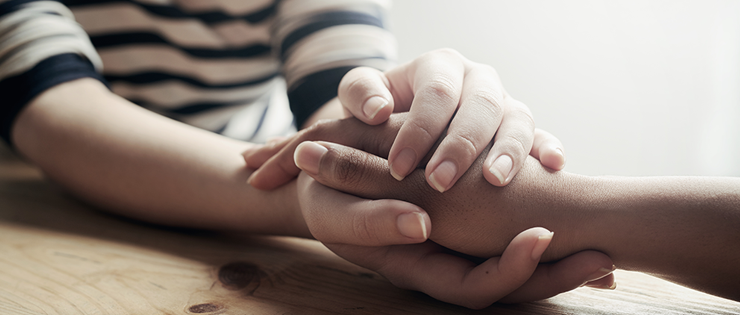
Large or small, loss is a regular part of life. Whether it’s the (hopefully) occasional loss of a loved one; or the (typically) more frequent loss of an opportunity experienced as a minor disappointment, loss is something with which we will all be faced and something we all need to learn how to manage (lest we be doomed to excessive suffering).
The good news is that we can cope with loss. As humans, we are remarkably strong most of the time. Knowing loss and disappointment will come at some stage, knowing what to expect and having some idea about what you can do to actively ameliorate the distressing emotions, are all important components of living a healthy and resilient life.
With this in mind, I proffer the following thoughts and suggestions for your consideration:
Why expecting loss is constructive
As the Buddhists say, life is full of suffering. This isn’t a form of negative thinking, or pessimism, but quite simply just a statement of fact; a truth.
Along the same lines, life involves death; death is inevitable. Attempting to deny this is almost absurd; it’s bordering on the irrational. Yet it is something many of us do; we avoid thinking about death, our own and that of our loved ones, (unconsciously) believing that if we don’t contemplate this reality then it might not happen!
But acknowledging the truth of loss and death is the first step to dealing with it. As with any other scenario, once we face a problem we’re then in a better position to deal with it. So although it might be somewhat distressing in the short term, expecting loss will actually be far more constructive and helpful and healthy in the longer term.
What can you expect to experience when you suffer a loss
If expecting loss is a helpful starting point then knowing, in more detail, what to expect during loss is also important.
In short, the symptoms of grief are very much like those of depression. Pervasive negative emotions (such as sadness), feelings of helplessness and hopelessness and loneliness, difficulty sleeping, trouble concentrating and even loss of appetite are all “normal”.
It’s also quite common to feel as though these symptoms will last for ever, that you’ll never feel better or never be able to enjoy happiness or life again.
But the good news is that we know this is very rarely the case. Most people, most of the time, will recover and return to relatively normal functioning within weeks or months (depending on the individual, the nature of the loss, the context and a range of other relevant variables).
This doesn’t mean the loss or the person will be forgotten; or that sadness will completely disappear forever. Rather, it means one can expect to return to social and occupational activities and to experience positive emotions again with minimal, or less distress and dysfunction.
How to cope
Taking control and actively applying proven strategies has been shown to maximise the chances of recovery, and even to speed up the process of such emotional healing. Although everyone is different and as such, different things will work for different people, the following tips would well be worth trying if coping better is a goal.
Express how you feel; no matter how distressed you feel. Too often we bottle up our emotions, not wanting to burden others or be judged for our distress. But talking about and sharing our feelings is not a weakness; rather, it’s a strength and it’s helpful and it’s something that will indubitably improve our chances of recovery.
Try to reassure yourself that this too shall pass. As noted above, most people bounce back from adversity and loss within a relatively short period of time. This does not mean recovery should be rushed and it’s important not to be impatient. It’s also important to accept and acknowledge the distress and grieving for what it is; an appropriate and normal response to loss. But know that it won’t go on for ever; or even if it does, it will become easier to live with over time.
And don’t feel like you have to cope all on your own. Reach out and ask for help. We all have people in our lives, family and friends, who’re ready and willing to support us; if only we let them. If you don’t, then there are professionals who can assist so visit your local doctor or find a clinical psychologist as there are a range of treatments that can also assist with grief and depression.
Moving on to a positive future
Finally, reflect upon the phenomenon known as “posttraumatic growth”. This concept describes the experience many of us have had but might not have understood; that following trauma and adversity often comes growth and improvement.
So as distressing and as difficult as loss and grief might be, think about what you might learn from it; how it might make you stronger; and what you can do as a result to become better.
As the saying goes, you are not what happens to you but who you choose to become!